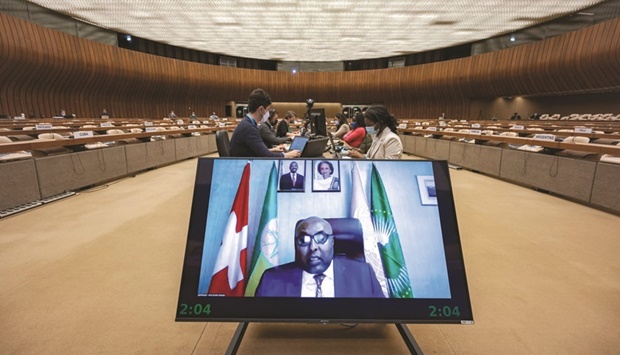The UN Human Rights Council has voted to set up an independent investigation into abuses in the Ethiopian conflict, after a senior UN official said there had been violations on all sides and mass arrests under a government crackdown.
The resolution, brought by the European Union and backed by Western states, passed despite objections from Ethiopia, which dismissed accusations of abuses and said it had already cooperated in investigations into the year-old war.
“A number of these violations may amount to crimes against humanity, and urgently require further investigations by independent experts,” the EU delegation to the UN in Geneva said in a statement welcoming the decision.
The resolution establishes a three-member panel of experts for one year to collect evidence and identify those responsible for violations with a view to future prosecutions.
Just before the vote, Ethiopia’s envoy to the UN in Geneva, Zenebe Kebede, dismissed what he called a “politically-motivated” text.
“The allegations levied against my country are unfounded and disregard the facts on the ground,” he added.
Earlier, he denounced what he said was a series of abuses by rebellious forces from the northern Tigray region and said the government would not work with the proposed panel.
“Ethiopia is being targeted and singled out at the Human Rights Council for defending a democratically elected government, the peace and the future of its people,” he said.
Thousands of civilians have died and millions have fled in the conflict between the federal government and rebellious forces including fighters loyal to the Tigray People’s Liberation Front (TPLF), which dominated Ethiopia’s ruling coalition for nearly 30 years.
There was no immediate comment from the TPLF yesterday.
Ethiopia’s conflict began when Prime Minister Abiy Ahmed sent troops into Tigray in November 2020 after accusing the region’s dissident ruling party of attacks on federal army camps.
The Nobel Peace laureate declared victory over the TPLF but rebel fighters staged a shock comeback, recapturing most of Tigray and pushing into neighbouring Afar and Amhara.
The vote on the motion after a day-long special session was 21 states in favour, 15 against including China and Russia, with 11 abstentions at the 47-member forum in Geneva.
The African Group of countries had also called for the resolution to be rejected, saying that the proposed investigative mechanism was “counterproductive”.
However, six African countries including Senegal and Sudan broke ranks and abstained, the tally showed.

Ethiopia’s ambassador Zenebe Kebede (on screen) delivers a speech remotely during a UN meeting in Geneva yesterday.
